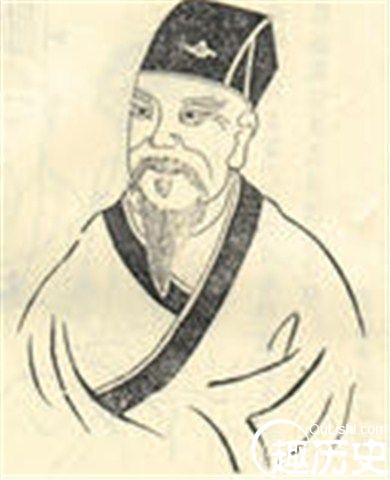Wang Gong is a poet from the Song Dynasty, but also a very outstanding painter, when Su Shi was in the Xuzhou area as an official, Wang Gong once asked him to tour the landscape together, they drank and played the flute together, until the evening to step on the moonlight did not go home, so the two also established a very good relationship. Some information about this character has a relevant introduction in Wang Gong's profile, so how is this character introduced in Wang Gong's profile?

The image comes from the Internet
Wang Gong's introduction to his character is Dingguo, and there is a name known as a Qingxu resident, a person from the Xinxian area, there is no detailed record of the time of his birth and death, and some people say that he was born in 1048 and then died in 1117. During the Song Dynasty, his official position was not very high, but he loved to create very much in his life, leaving people with many excellent works, including "Miscellaneous Records", "Smelling and Seeing Recent Records" and so on. Moreover, Wang Gong's personality is also very upright, and he is sincere in his treatment of friends, and when he gets along, he will feel that he is a very proud person, so in the political arena at that time, he was also respected by many people.
In addition, Wang Gong's profile also introduces that he was once in 1079, because his friend Su Shi was involved in the Wutai poetry case, he was also greatly implicated, so he was disposed of by the imperial court and sent to the Binzhou area to become a minor official. But he did not give up on himself because of this, but still lived as usual. The feelings between him and Su Shi were not weakened by this incident, and the two people often corresponded and exchanged, and there was no depression in their letters, but more of a discussion of some health care methods and views on poetry, calligraphy and painting.
Works by Wang Gong
Wang Gong was a very famous poet during the Song Dynasty and was very good at painting, so although his position was not very high, he was respected and praised by many people at that time. At that time, he and Su Dongpo were also very good friends, and many aspects were influenced by him, and Wang Gong's works with a bold personality always revealed a sense of unrestrained and free, and wrote many famous and excellent works. So what are Wang Gong's works?
Wang Gong's works include "Miscellaneous Records of Hands", "Jiashen Miscellaneous Records", etc., in addition, he also created many excellent poems at that time, many of which are very similar to his personality, but unfortunately, the poems are basically all lost in the process of circulation, and only a few acrobatics remain in the world. And "Smelling the Near Record" is one of the miscellaneous notes left behind, this work is a historical book, some of which tells about what happened during the time of Chai Sejong. At that time, Liu Chong's invasion in the Hedong region, Chai Shizong personally led the soldiers to meet the battle, and some ministers came to stop him at this time, but Chai Shizong insisted on going to war and successfully killed Liu Chong, which greatly improved the morale of the soldiers.
It is said that many of Wang Gong's works are impossible for Su Shi to catch up with, but unfortunately such outstanding works have been lost, and people do not attach great importance to Wang Gong and his deeds, and there are not many records of him in history, and even his works are not very well known. In fact, in that period, Wang Gong was a very remarkable person, he had a good relationship with many famous poets, and the several works he left behind also had a very important role, supplementing the shortcomings of many historical materials.